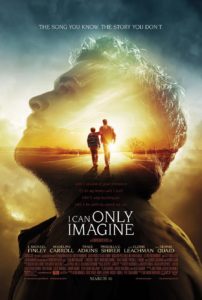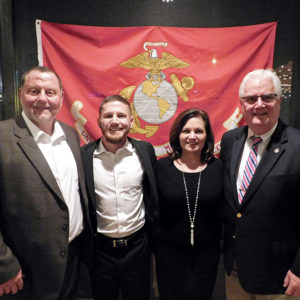Richard Rodgers was, indisputably, the leading and most prolific famous composer of American musicals and musical comedy ever to grace the Broadway stage.
Rodgers was born in 1902 in Long Island, New York to Dr. William Rodgers and his wife, Mamie. Both parents were music lovers and often went to musical comedies and operettas. There was always music in the home with mama playing the piano and Will singing. It wasn’t long before Richard started banging away on the piano and soon new tunes began to emerge – this began his lifelong career with music.
Young Rodgers took piano lessons when he was six-years-old but he was basically self-taught. Rodgers actually published his first song at 15! He began writing songs with lyricist Lorenz Hart at age 16.
His formal training started at Columbia University and he also studied at Julliard School of Music and the Institute of Musical Arts. Rodgers did not earn any degrees but later in life he was bestowed with seven honorary doctoral degrees.
As a young adult he collaborated with Hart on a series of popular shows including “The Girlfriend,” “Babes in Arms” and “Pal Joey.” Rodgers and Hart wrote 28 stage musicals and eight film scores. Unfortunately, Hart was irresponsible and an alcoholic; he died in 1943. After Hart’s death Rodgers needed a new lyricist and was fortunate to partner with Oscar Hammerstein II. He came with previous credits as a lyricist for numerous musical shows. Together, they produced nine Broadway shows including “Oklahoma” in 1943. It won a Pulitzer Prize during its record-setting run over five years and 2,212 performances.
Rodgers and Hammerstein produced “Carousel,” “ Flower Drum Song,” “ The King and I,” “ South Pacific,” “The Sound of Music,” the film, “State Fair” and the television musical, “Cinderella.”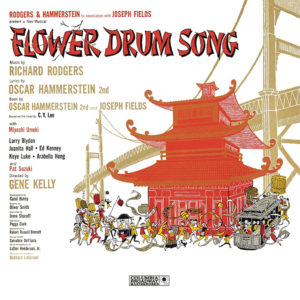
“Rodgers, with Hammerstein, inaugurated a whole series of show classics that will probably go down in history as paralleling the earlier Gilbert and Sullivan operettas, in significance,” wrote McKinney and Anderson in their book, “Discovering Music.”
The American musical scene reached its zenith of popularity and success of Broadway musical shows in the mid-20th century. As gratifying and successful as Rodgers musicals brought him fame and fortune, he longed for an extended huge work on a more serious theme. He thought this type of composition would solidify his reputation as an important composer, that not only the public would acknowledge but music critics as well.
Victory at Sea: This wish was accomplished when NBC-TV commissioned Rodgers to write the score for this extended production commemorating the great naval sea battles of World War II. This herculean effort of 13 hours of music, depicted the restlessness, power, and mystery of the sea itself. The New Yorker magazine described the music as “A seemingly endless creation, now martial, now tremendously moving,” Victory at Sea was 26 half-hour episodes produced in 1952 -1953. It was budgeted at $500,000, a vast amount of money in the early 50s, (several million in today’s money.) The production won several awards including the U.S. Navy Distinguished Public Service Award and a 1953 Emmy Award.The entire series was the longest instrumental television score ever written; noted in the Guinness Book of World Records.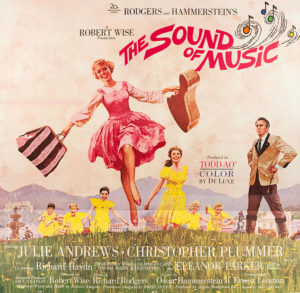
This monumental score would not have been possible without the recognized, skilled master of music arranging, Robert Russell Bennett. He collaborated with Rodgers on many of his Broadway shows using Rodgers melodies and sketches for the score and brilliantly arranging them for orchestra. It is said that of the 13 hours of music, Bennett was responsible for arranging 12 hours of them.
Part of the score was a section called, Beneath the Southern Cross. This tango, Rodgers wrote and Hammerstein gave words to, became the song, No Other Love. This song was in the musical, Me and Juliet. Perry Como recorded it and it became the number one hit on the pop charts.
Bennett must not be overlooked as he was a star in his own right. He was as much responsible for the success of many Broadway shows as the composers, as he arranged over 200 shows. Bennett, and others he influenced, are largely credited with the so-called ‘Broadway Sound’ that is so typical of the music produced for the American stage, arranged primarily by Bennett.
Rodgers fame was not limited to Broadway shows. Individually he wrote over 800 songs, over 100 became hits and many are considered classics. Cole Porter once said “Rodgers best songs have a kind of holiness about them.” Dorothy Rodgers, his wife, chose, You’ll Never Walk Alone, Hello Young Lovers, Little Girl Blue and Dear, Dear, as her favorites.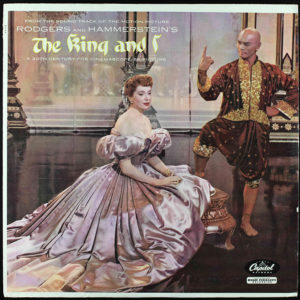
According to Associated Press Correspondent, Hugh Milligan, “Rodgers was one of a few nice guys ever to finish first in this town, (Manhattan.)”
America owes so much to the brilliance of Richard Rodgers for providing us with such a rich wealth of outstanding musical productions that will never go out of style. What a heritage he left for us to enjoy.
Please submit your questions and comments to banddirector01@comcast.net
Visit our website at www.danvilleband.org for up-to-date information about the Danville
Community Band.
